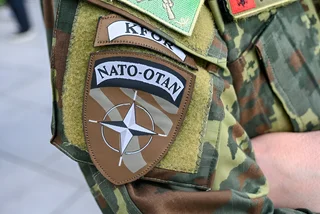Supporters of the Istanbul Convention on protecting women from abuse and domestic violence faced a setback in their efforts to secure ratification in the Czech Senate. Opponents of the convention thwarted a vote in the Senate's constitutional commission, leaving the fate of its ratification uncertain.
A mix of views
Of the Czech Senate committees, only the Human Rights Committee supported the treaty – known in full as the Council of Europe Convention on Preventing and Combating Violence Against Women and Domestic Violence – with a narrow majority of three out of five members. Conversely, it was rejected by the constitutional and legal committee, the foreign affairs committee, and the EU affairs committee.
PARTNER ARTICLE
Chairman of the Standing Committee of the Senate for the Constitution, Zdeněk Hraba, raised concerns about the convention's vague wording, which allows for financial support by any non-governmental organization for projects related to the protection or assistance of victims of violence.
Hraba suggested that the convention might become a source of law for asserting gender rights. In contrast, Senator Hana Kordová Marvanová argued that ratifying the Convention would signify the Czech Republic's commitment to promoting equal rights for men and women, emphasizing that it focuses on combating violence rather than imposing new concepts.
Senate President Miloš Vystrčil expressed support for the treaty, urging the Senate to "find the strength" to approve it and characterizing arguments against ratification as resistance to self-improvement.
Constitutional lawyer Jan Kysela and Veronika Bílková, head of the department of international law at Charles University, concurred that the convention aligns with the Czech constitutional order. Bílková stressed that it addresses violence against women and domestic violence without touching on marriage or the adoption of children by same-sex couples. It also does not enable appeals against non-fulfillment of the contract to European courts.
Czechia one of few countries to not ratify
The Czech Republic signed the convention in 2016 but has repeatedly postponed its ratification, making it an outlier among EU countries; 37 of the 43 Council of Europe member states have accepted it. Nevertheless, Hungary, Lithuania, and Latvia have not ratified it, and Turkey withdrew its signature.
In the Czech Republic, conservative groups and seven Christian churches have strongly opposed the convention. Women's organizations assert that the treaty is the subject of disinformation campaigns by certain associations and individuals, emphasizing its potential to improve assistance for victims and symbolize a commitment to combatting violence in the country.
The fate of the convention's ratification will be closely watched in the coming weeks as the Senate considers its decision.












 Reading time: 2 minutes
Reading time: 2 minutes 




























